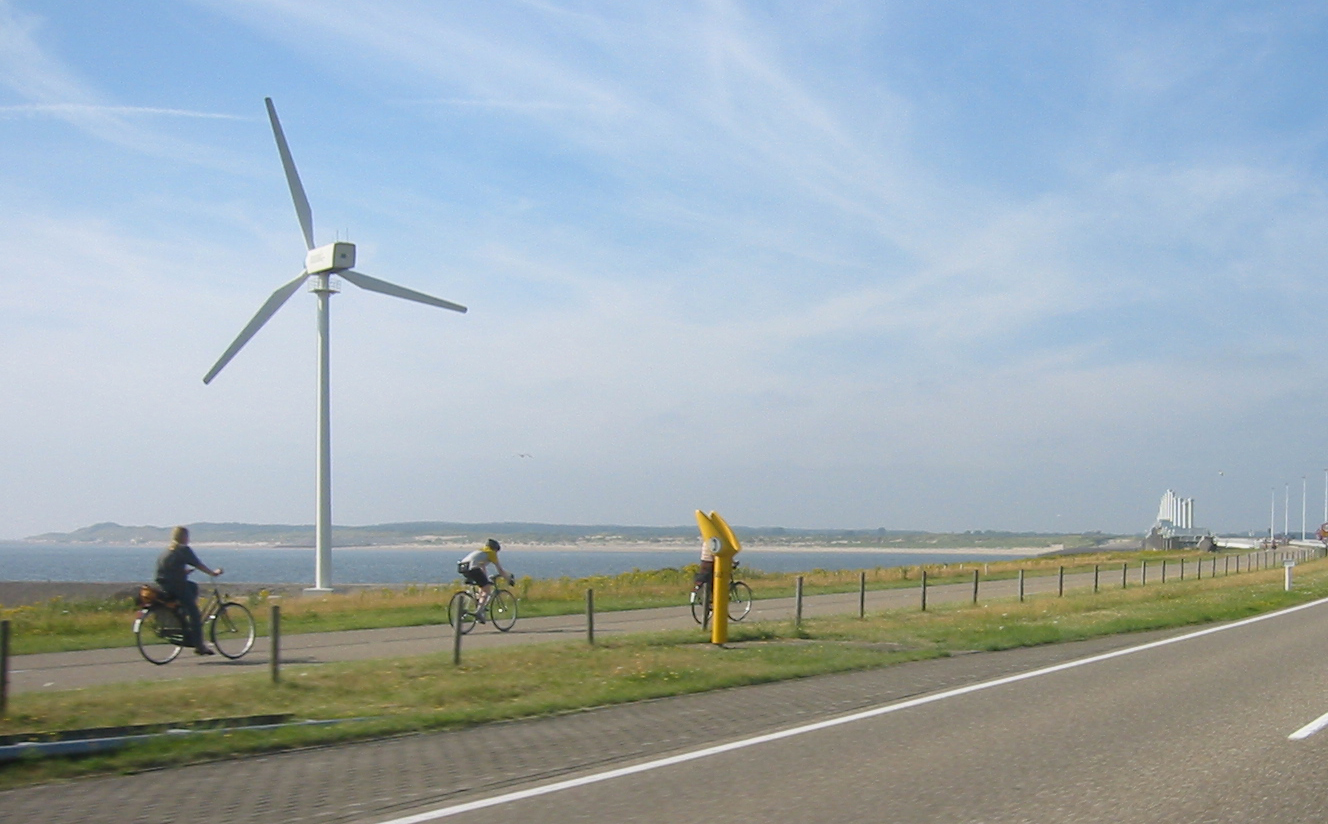 Big renewables and big nuclear are incompatible; we aren't doing anything like enough to solve climate change; Stern needs to go much further; we have to solve the problem of climate change because the costs of failure are without limit - these are the messages in three excellent letters relating to govt green energy plans in Saturday's Guardian . Funnily enough I dont read the Guardian and would have missed them normally (my partner passed the letters on to me). I've reproduced them below in full because they are a powerful and practical criticism of govt plans. They are also powerful backing for what I've said about renewables, nuclear power, climate change, the Stern Report into the economics of climate change and govt leadership/direction/consistency...(Good to see the Open University connection too!)
Big renewables and big nuclear are incompatible; we aren't doing anything like enough to solve climate change; Stern needs to go much further; we have to solve the problem of climate change because the costs of failure are without limit - these are the messages in three excellent letters relating to govt green energy plans in Saturday's Guardian . Funnily enough I dont read the Guardian and would have missed them normally (my partner passed the letters on to me). I've reproduced them below in full because they are a powerful and practical criticism of govt plans. They are also powerful backing for what I've said about renewables, nuclear power, climate change, the Stern Report into the economics of climate change and govt leadership/direction/consistency...(Good to see the Open University connection too!)It is good to see bold targets being set for renewable energy (Cost of tackling global climate change has doubled, warns Stern, June 26). But it appears that there could be a conflict with the government's parallel commitment to greatly expanded nuclear power. UK "baseload" is about 20 gigawatts (GW), nearly a quarter of total UK generating capacity - this is kept available at all times and supplies all the electricity required at periods of low demand, like at night.
It is currently proposed that we build perhaps 20GW of new nuclear plant. In addition it is proposed that by 2020 we should have up to 30GW of offshore wind capacity and perhaps an 8.6GW tidal barrage on the Severn Estuary. Nuclear plants can't easily vary their power output to follow changing consumer demand patterns and are, in any case, usually kept running at full power in order to pay for their significant capital costs. At periods of low demand it would seem therefore that, in the absence of major electricity storage facilities, if wind or tidal energy inputs to the grid are available, the electricity from these, or any other renewables sources, could not actually be used.
Put simply, for much of the time, big renewables and big nuclear would be incompatible.
Professor David Elliott
Energy and environment research unit, Open University, Milton Keynes
Nicholas Stern's doubling from 1% to 2% of GDP the amount he thinks needs spending on mitigating climate change is welcome, but why hasn't he gone the whole hog and trebled it to the 3% identified in his original report, which may give us an evens chance of keeping within a two degrees temperature increase?
The answer I suspect is that which has vexed many non-politicians, namely how to make their analysis acceptable to politicians. The fact is, we haven't even spent anything like 1%, or £14bn per annum, since Stern's report was published, and every pound we don't spend in one year is carried forward to the next. Like an unmanageable credit card bill, we will eventually be drowned in interest payments, except in this case the "interest" is the carbon budget which we're spending like there's no tomorrow. Well before 2050, that budget will be exhausted.
The only rational response is to recognise that we cannot manage climate change with the old tools of government. We need a climate change cabinet, modelled on similar lines to Churchill's war cabinet; we need a climate change department which ends the absurd dichotomy in government between energy supply and demand; we need to emulate and surpass Germany's renewables energy investment strategy which recognises future global markets in green technologies and is somehow supporting R&D without breaking EU state aid rules; we need to stop believing that technologies like nuclear, which will not deliver a single extra watt of "green" electricity until around 2030, are part of the solution; and most urgently we need to recognise that early carbon reductions are the most important step, and that will only happen with rapid behavioural change, which means some form of carbon rationing.
In this last respect, for any minister or potential minister to say the time for personal carbon allowances has not yet come illustrates either deep cynicism, defeatism or complacency, or perhaps a combination of all three.
Colin Challen MP
Chair, all-party parliamentary climate change group
Stern joins UNDP's "emerging consensus" of halving global emissions by 2050, also stressing the "pragmatism" of the equalisation of per capita emissions globally by then. This is the global principle of contraction and convergence. It is now widely supported and with early day motion 1795, many of our MPs are urging the government to support the principle openly. They point out that contraction and convergence was clearly advocated to government in the royal commission on environmental pollution report on which the UK climate bill is based.
Doubling the spend of GDP to achieve this is neither here nor there. As the costs of failure are without limit, the only cost-benefit ratio relevant to this whole process results from understanding that we have to solve the problem of climate change faster than we are causing it.
Aubrey Meyer, London
No comments:
Post a Comment
Genuine, open, reasonable debate is most welcome. Comments that meet this test will always be published.